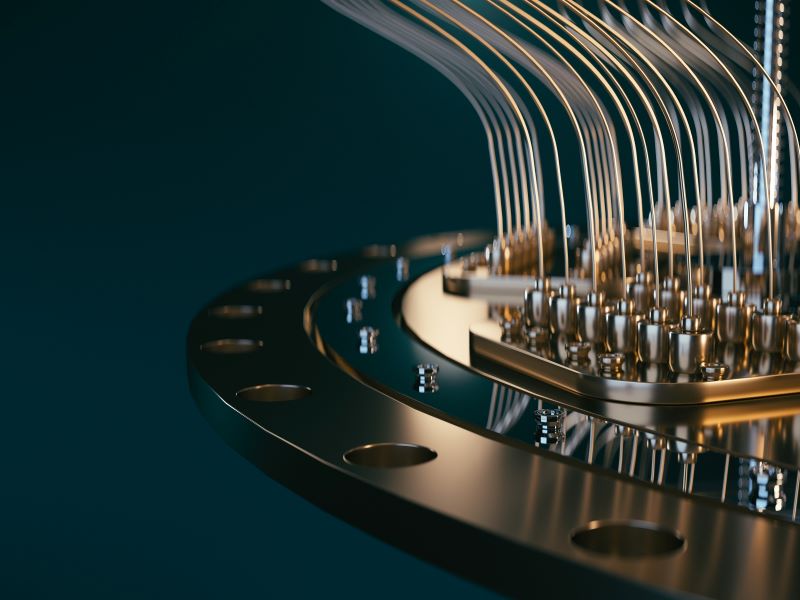Almost two dozen local and international quantum firms were approached by the federal government last year as part of a private expression of interest process designed to gauge the maturity of the market, a Senate Estimates committee has heard.
The admission from senior Industry department officials months after details of the expression of interest (EoI) were leaked comes as the government refuses to release correspondence with the firms that participated in the EoI process, rejecting freedom of information requests on national security and diplomatic grounds.
The Industry department also revealed at Estimates that meetings between its officials and PsiQuantum, the US-based company understood to be the front-runner in the EoI process, had taken place at “various levels” in 2023, including in the United States alongside Minister for Industry and Science Ed Husic more than a year ago.
The EoI, which the department has refused to release to InnovationAus.com, was issued in August, just months after the release of the inaugural National Quantum Strategy, in which the federal government proposed building the “world’s first error-corrected quantum computer in Australia”.
Several firms are understood to have responded the EoI process, which insiders have said appeared to have been written in a way that favoured the photonics-based quantum approach being pursued by PsiQuantum.
Mr Husic, an advocate for the local quantum industry, has previously dismissed reports on the EoI as “speculation”, but has said that he would “speak fully” if an investment decision did eventuate.
At a late-hour session of Senate Estimates on Thursday night, the Department of Industry, Science and Resources (DISR) faced a short block of questions from Liberal Senator Andrew Bragg on the EoI.

DISR secretary Meghan Quinn confirmed for the first time that the closed-door EoI process “exploring the maturity of the market around quantum computing” was conducted by the department last year.
“We surveyed the market in terms of who we sought information from and we went out to 21 domestic and international companies as part of the exploration process,” Ms Quinn said.
Despite facing sustained pressure to reveal the details of EoI in recent months, Ms Quinn was unable to comment on whether PsiQuantum was part of the group of companies approached, or provide the split between foreign and domestic companies that participated.
“Happy to take that on notice given I haven’t got the list. I don’t want to mislead the Senate with ruling people in or out,” she said in response to question from Senator Bragg.
Ms Quinn also said departmental officials had met with PsiQuantum “at a range of levels”, including when Mr Husic visited the company’s headquarters in the United States in January 2023.
Three months after Mr Husic’s visit, and just weeks before the release of the National Quantum Strategy in May, PsiQuantum registered as a company in Australia and set up its local headquarters in Brisbane.
Officials working on the National Quantum Strategy, the development of which was led by the Office of the Chief Scientist, also engaged with PsiQuantum when members of the company visited Australia.
“The members of the company have visited Australia and engaged with the team looking after the quantum strategy and providing advice, and so we’ve met with them at various different levels,” Ms Quinn said without saying when the meeting occurred.
As revealed by InnovationAus.com, PsiQuantum staff based in the United Kingdom met with former Queensland Premier Annastacia Palaszczuk in August last year – the same month that the EoI was issued by the federal government.
PsiQuantum also sat as an observer at the inaugural meeting of Queensland’s newly-formed quantum advisory council in December, making it the only foreign company privy to discussions held between the Queensland government and universities about quantum strategies.
Ms Quinn on Thursday night said the department was aware of the Queensland government’s engagement with PsiQuantum, but was unaware whether it had entered into an agreement, including one involving the Commonwealth.
Questions about the EoI come just days after Mr Husic’s office refused a freedom of information request from InnovationAus.com to release correspondence with quantum companies involved in the market approach.
The documents were refused in full on the basis that they would damage Australia’s “national security, defence or international relations” as the information had been communicated in confidence by a foreign government or an international organisation.
It is also understood that a separate FOI request submitted by the shadow minister for government services and the digital economy Paul Fletcher was also knocked back on the same grounds this week.
The FoI from the Opposition sought to obtain correspondence between Mr Husic’s office and Prime Minister Anthony Albanese related to a quantum computer or PsiQuantum.
Closing out the exchange at Senate Estimates on Thursday night, assistant manufacturing minister Senator Tim Ayres, who earlier in the day was criticised over a perceived conflict of interest over an appointment to the National Reconstruction Fund, said quantum was a focus for the government.
“[In] the broad area of quantum, Australia is a world leader in the technology. We have the fifth largest quantum technology workforce in the world. Our research papers… are ranked fourth in the world in this area,” he said.
“The government is very focused on making sure that if we can these technologies are commercialised in Australia. There is enormous strategic and economic opportunity.”
Do you know more? Contact James Riley via Email.

